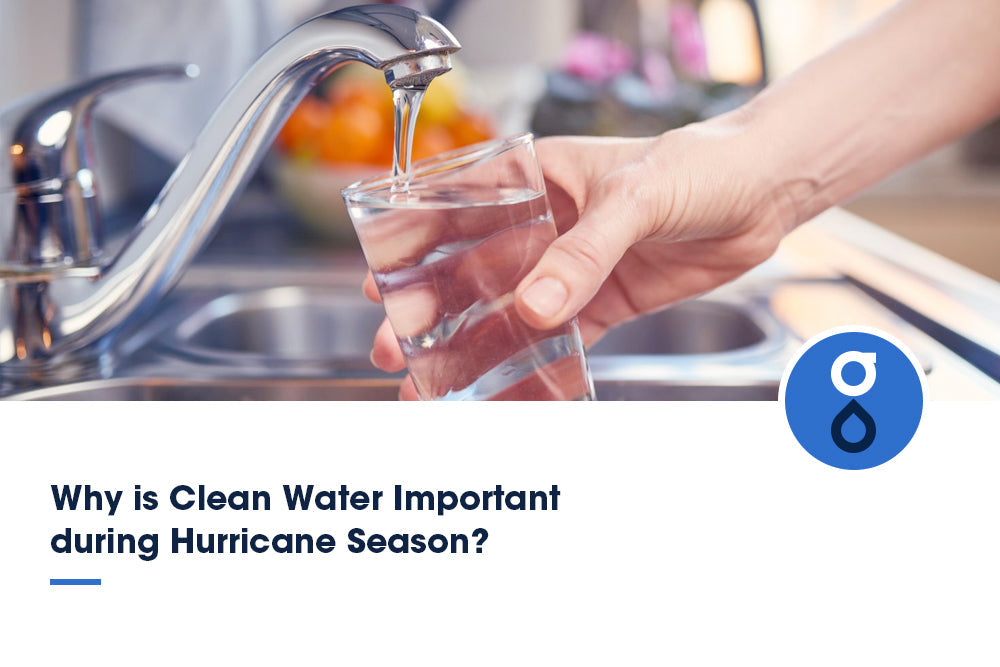Table of Contents:
What is water quality?
Why does water quality matter?
How does water quality affect your food and drinking taste?
Common causes of poor water quality
Health risks of poor water quality
How to improve the quality of your drinking water?
FAQs
Conclusion
Do you ever wonder why your food and drinks taste different sometimes? It could be because of the quality of the water you're using. Water quality has a direct impact on the taste of what you consume. This article will explore how poor water quality can affect your food and drinking experience. By understanding the importance of water quality, you can make informed choices to improve your overall taste and health.
What is water quality?

Water quality refers to the characteristics and properties of water that determine its suitability for various uses, such as drinking, cooking, and irrigation. One way to assess water quality is through testing. Testing helps identify any contaminants or impurities in the water, allowing for appropriate measures to be taken to ensure its safety.
Why does water quality matter?
To truly appreciate the taste of your food and drinks, it's essential to understand the significant impact that high-quality water has on your overall experience. The importance of water quality goes beyond just quenching your thirst; it directly affects the flavors and textures of the food and beverages you consume. Here are three reasons why water quality matters:
- Taste Enhancement: High-quality water enhances the natural flavors of your food and drinks. Clean and pure water allows the ingredients to shine, bringing out the subtle nuances and complexities that make each bite or sip enjoyable. On the other hand, poor water quality can introduce unwanted flavors, such as chlorine or metallic tastes, which can negatively impact your dining or drinking experience.
- Cooking and Baking Results: The significance of water quality extends to the cooking and baking process. Water is a crucial ingredient in many recipes, and using high-quality water can help achieve better results. It ensures proper ingredient hydration, contributes to the texture and consistency of dishes, and can even affect the rise and fluffiness of baked goods.
- Health and Safety: The impact of water quality on your health and safety can't be understated. Clean, contaminant-free water is crucial for proper hydration and your body's overall well-being. It also reduces the risk of waterborne illnesses, ensuring you can enjoy your meals without worrying about potential health hazards.
How does water quality affect your food and drinking taste?

Proper water filtration directly impacts the taste of your food and drinks. The quality of the water you consume plays a crucial role in enhancing your meals' flavors and overall experience. Here's how water quality affects your food and drinking taste:
- Water filtration: By removing impurities and contaminants from your water, filtration systems ensure you have clean and pure water. This clean water acts as a blank canvas for the flavors in your food and drinks to shine through.
- Taste buds: The taste buds on your tongue are responsible for detecting different flavors. Consuming water with high levels of impurities or chemicals can dull the sensitivity of your taste buds, making it harder to experience the flavors in your food and drinks fully.
- Sensory perception: Water quality affects your sensory perception, which includes taste, smell, and texture. Impurities in water can alter the balance of flavors and aromas, making your food taste off or unpleasant.
- Enhanced flavors: Having access to clean and filtered water allows the natural flavors in your food and drinks to be more pronounced. Whether it's a refreshing glass of water or a gourmet meal, the quality of the water you consume can elevate your dining experience.
Common causes of poor water quality

One factor that can contribute to the poor quality of your water is contamination from various sources. Understanding the common causes of poor water quality is important, as they can severely affect your health and well-being. Here are three common causes of poor water quality:
- Industrial pollution: Industries release harmful chemicals and pollutants into the water, such as heavy metals, pesticides, and solvents. These contaminants can seep into the groundwater and affect the quality of your drinking water.
- Agricultural runoff: Using fertilizers, pesticides, and herbicides in agriculture can contaminate water. When it rains, these chemicals can wash off the fields and enter nearby water sources, causing potential health risks.
- Inadequate sewage treatment: If sewage treatment plants aren't properly maintained or lack infrastructure, untreated or partially treated sewage can enter water bodies. This can introduce harmful bacteria, viruses, and parasites into the water, threatening human health.
The consequences of poor water quality can be severe, ranging from gastrointestinal illnesses to long-term health problems. It's crucial to address the causes of poor water quality to ensure access to safe and clean drinking water for everyone.
Health risks of poor water quality

To understand the potential health risks of poor water quality, you must be aware of the contaminants that can enter your water source and their possible consequences on your well-being. Here are some key points to consider:
- Waterborne diseases: Consuming water contaminated with harmful substances can lead to various health problems. Waterborne diseases such as cholera, typhoid, and hepatitis A can be transmitted through contaminated water. Exposure to heavy metals like lead and arsenic can cause neurological damage, developmental issues, and even cancer.
- Weakened immune system: Poor water quality can weaken your immune system, making you more susceptible to infections and illnesses. This can be especially dangerous for children, older people, and individuals with compromised immune systems.
- Long-term consequences: Prolonged exposure to poor water quality can have long-term consequences on your health. Chronic illnesses like kidney disease, gastrointestinal problems, and respiratory issues may develop over time.
Ensuring that your water source is clean and free from contaminants is crucial to protect your health and well-being. Regular testing, proper filtration systems, and precautions like boiling water can help mitigate the risks of poor water quality.
How to improve the quality of your drinking water?

To improve the quality of your drinking water, start by regularly testing and treating your water sources. This is a crucial step in ensuring your water is clean and safe. Here are some ways to enhance water quality and tips for clean drinking water:
- Install a water filtration system: Water filtration systems are designed to remove impurities and contaminants from your drinking water. They can effectively remove harmful substances such as bacteria, viruses, heavy metals, and chemicals. Investing in a reliable water filtration system will provide you with clean and healthy drinking water.
- Maintain proper hygiene: It's important to maintain proper hygiene when handling drinking water. Wash your hands thoroughly before touching any water containers or utensils used for drinking. Additionally, clean and sanitize your water storage containers regularly to prevent the growth of bacteria or other harmful microorganisms.
- Avoid cross-contamination: To ensure the cleanliness of your drinking water, avoid cross-contamination. Don't use the same utensils or containers for drinking and other purposes, such as storing chemicals or cleaning agents. This practice can introduce contaminants into your water and compromise its quality.
FAQs
Can poor water quality affect the nutritional value of food?
Poor water quality can negatively impact the texture of your food. It can affect the cooking process, resulting in uneven cooking and a less desirable texture. Additionally, it may also have an impact on the appearance and preservation of your food.
Is it safe to consume fruits and vegetables washed with poor- quality water?
Consuming fruits and vegetables washed with such water can expose you to harmful bacteria, parasites, and other contaminants that may cause foodborne illnesses. These illnesses can range from mild stomach discomfort to more severe complications, especially for individuals with weakened immune systems.
Are there any specific foods or ingredients that are more sensitive to changes in water quality?
-Coffee: The water quality used to brew coffee can significantly influence its taste. Impurities in water, such as minerals or chlorine, can alter the flavor profile of the coffee, making it taste bitter or dull.
- Seafood: Seafood, especially delicate types like fish and shellfish, can absorb the flavors of the water they're cooked in. Poor water quality can introduce unwanted flavors and odors into the seafood, compromising its taste and freshness.
- Baking: Water is often used as a critical ingredient when baking. Any impurities in the water can affect the texture and taste of baked goods, resulting in a less desirable outcome.
Conclusion
In conclusion, the quality of water has a significant impact on the taste of your food and drinks. Poor water quality can result in unpleasant flavors and odors, affecting your overall dining experience. Understanding the common causes of poor water quality and the associated health risks is crucial. Taking steps to improve the quality of your drinking water can ensure that you enjoy the best possible taste in your meals and beverages.
















